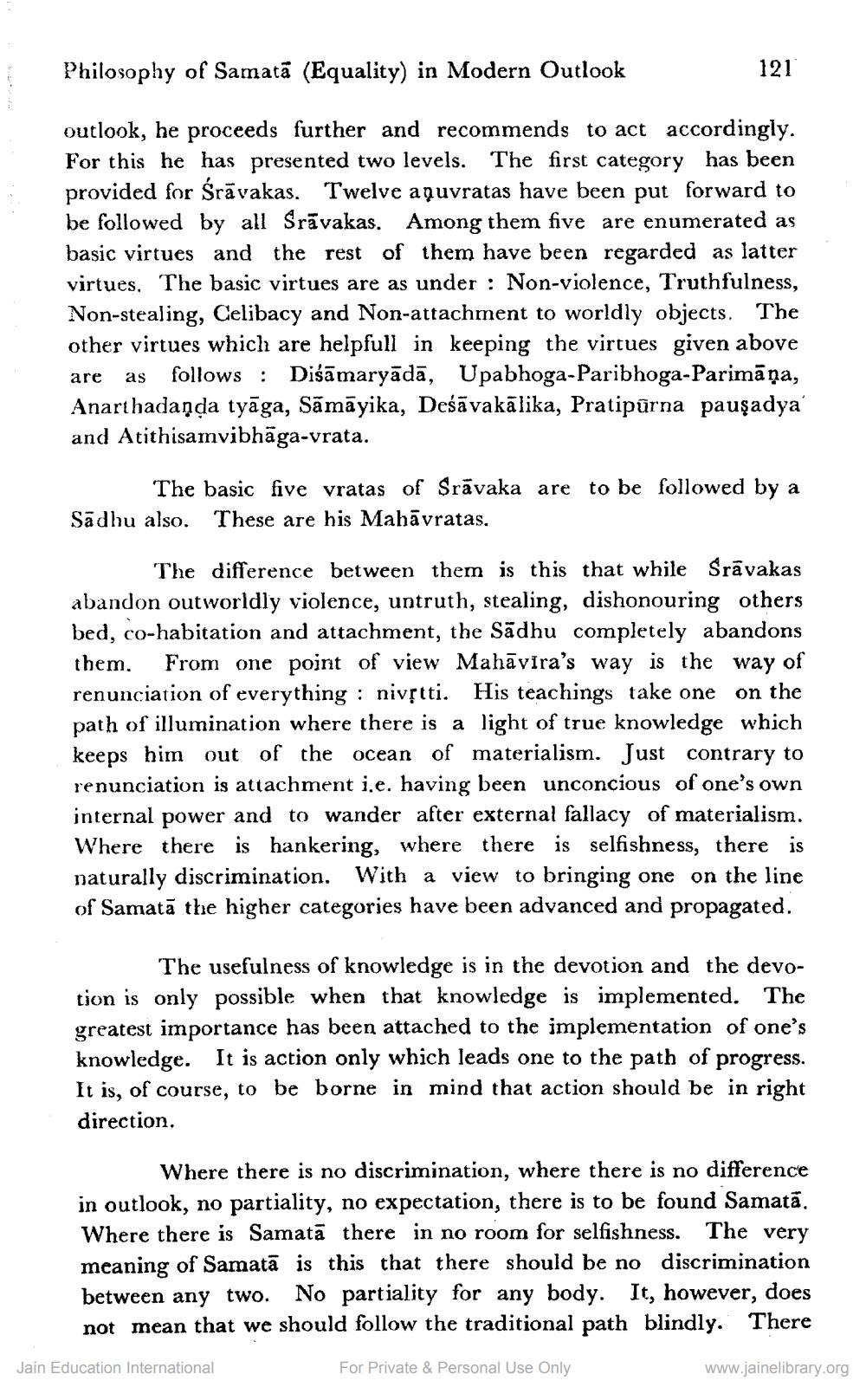________________
Philosophy of Samata (Equality) in Modern Outlook
outlook, he proceeds further and recommends to act accordingly. For this he has presented two levels. The first category has been provided for Śrāvakas. Twelve apuvratas have been put forward to be followed by all Sravakas. Among them five are enumerated as basic virtues and the rest of them have been regarded as latter virtues. The basic virtues are as under: Non-violence, Truthfulness, Non-stealing, Celibacy and Non-attachment to worldly objects. The other virtues which are helpfull in keeping the virtues given above are as follows: Diśāmaryādā, Upabhoga-Paribhoga-Parimāņa, Anarthadaṇḍa tyāga, Sāmāyika, Deśāvakālika, Pratipurna pauşadya and Atithisamvibhāga-vrata.
121
The basic five vratas of Sravaka are to be followed by a Sadhu also. These are his Mahāvratas.
The difference between them is this that while Sravakas abandon outworldly violence, untruth, stealing, dishonouring others bed, co-habitation and attachment, the Sadhu completely abandons them. From one point of view Mahavira's way is the way of renunciation of everything: nivṛtti. His teachings take one on the path of illumination where there is a light of true knowledge which keeps him out of the ocean of materialism. Just contrary to renunciation is attachment i.e. having been unconcious of one's own internal power and to wander after external fallacy of materialism. Where there is hankering, where there is selfishness, there is naturally discrimination. With a view to bringing one on the line of Samatā the higher categories have been advanced and propagated.
The usefulness of knowledge is in the devotion and the devotion is only possible when that knowledge is implemented. The greatest importance has been attached to the implementation of one's knowledge. It is action only which leads one to the path of progress. It is, of course, to be borne in mind that action should be in right direction.
Where there is no discrimination, where there is no difference in outlook, no partiality, no expectation, there is to be found Samatā. Where there is Samatā there in no room for selfishness. The very meaning of Samatā is this that there should be no discrimination between any two. No partiality for any body. It, however, does not mean that we should follow the traditional path blindly. There
For Private & Personal Use Only
www.jainelibrary.org
Jain Education International




